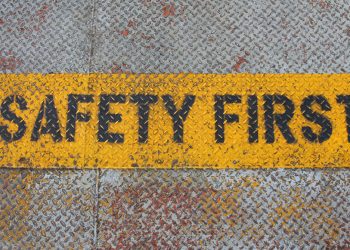As incidents involving poorly maintained pilot ladders remain a concern for the shipping industry, local pilot associations have recently taken action in protest of boarding arrangements that are considered non-compliant, according to information by North of England P&I Club.
If a pilot is presented with unsafe boarding arrangements, it is likely that this will result in a refusal to board the vessel, which in turn, means the vessel will be unable to enter the port and reach the berth.
Data by IMPA released last January revealed that 12.11% of pilot transfer arrangements were reported to be non-compliant with combination ladders and pilot ladders having the most defects by both number and percentage.
In this respect, UKMPA, US’ APA, and India’s Paradip Port have become some of the entities that have recently issued instructions on proper pilot boarding arrangements.
Specifically, in the latest of the actions, the UK Maritime Pilots’ Association (UKMPA) sent a letter on 23 March 2021, expressing their concerns on recent experiences with non-compliant trap door arrangements. In one particular incident, the pilots were presented with a non-compliant trapdoor arrangement that they refused to board.
As no suitable arrangement for safe boarding could be presented, the vessel remained at anchor. Therefore, the vessel sailed without berthing to its next port of call in Europe.
The UKMPA also report another recent incident where, again, a vessel arrived with a non-compliant trapdoor arrangement. Although alternate arrangements were made that allowed the pilot to eventually board, the vessel experienced lengthy delays.
Following this, the terminal operator involved prohibited any similar non-compliant vessels with this arrangement and issued strict instructions to its vetting surveyors to look out for this non-compliance in the future.
In India, the Paradip Port Trust issued a circular in 2020, advising of the requirement for pilot ladders to not only be in full compliance with SOLAS regulations but also that the vessel provides the port authorities with pilot ladder certificates and maintenance records prior to arrival.
Furthermore, the circular states that pilot ladders should not be more than two years old, which is above SOLAS requirements.
Satisfying this requirement incurs additional costs and can lead to delays – both of which can result in disputes between the shipowner and charterer,
…the Club warned.
In addition, the US American Pilots’ Association urged state pilotage authorities to take action on the use of dangerous trapdoor pilot-access arrangements, also urging pilots to refuse to board vessels with unsafe arrangements.
In October 2020, the US Coast Guard Office of Commercial Vessel Compliance published MSIB 21-20 Change 1 “Recommendation for Pilot Transfer Arrangements”, in light of recent deaths of maritime pilots while embarking commercial vessels. To ensure the safety of all personnel boarding a vessel at sea, USCG strongly recommended that owners and operators of vessels, regardless of vessel build date, follow the guidelines within IMO Resolution A.1045(27) – Pilot Transfer Arrangements.
Best practices
To ensure your pilot boarding arrangements are compliant with both international legislation and local requirements, and therefore reduce the risk of incidents, delays, and disputes, ships are advised, prior to arrival at a port, to:
- check with the agent on the local regulations on pilot boarding arrangements
- check pilot boarding arrangements – and trapdoor, if applicable – are well maintained and in full compliance with SOLAS regulations.


































































Please check when last inspection completed, ISO levels maintained or not, when carried out safety inspection onboard, job log book written properly or not, and what type of work did completed crew onboard last three months?
This is a great development and long overdue. Good to see authorities are taking a stand.
Fraser River Pilots, Vancouver Canada.